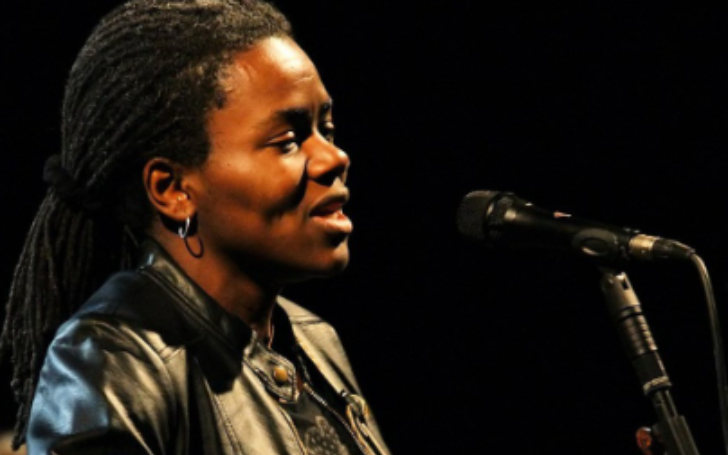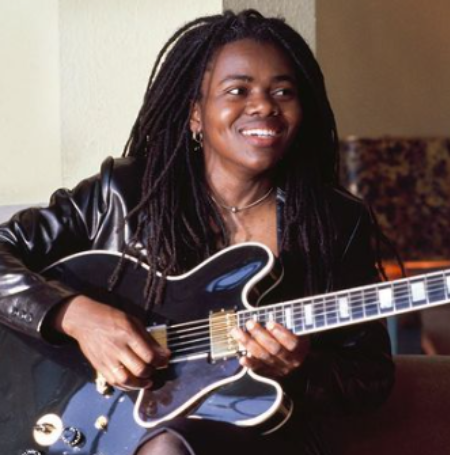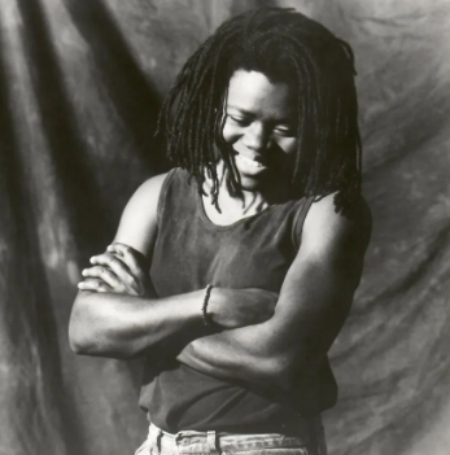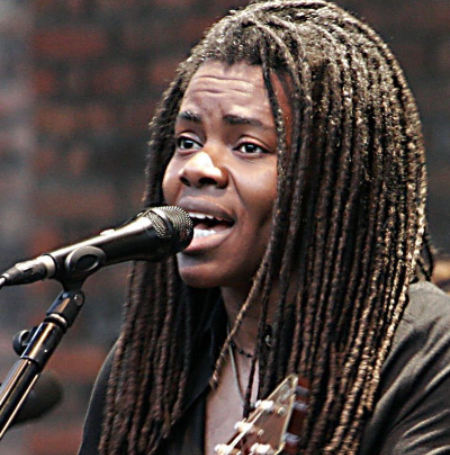Breaking Down Tracy Chapman's Financial Success: Net Worth and Beyond

Tracy Chapman, an acclaimed American singer-songwriter, rose to fame with her chart-topping singles "Fast Car" in 1988 and "Give Me One Reason" in 1995. She first made her mark in the music industry in 1987 when she was signed by Bob Krasnow to Elektra Records.
How Rich is Tracy Chapman?
Tracy Chapman, an American singer, songwriter, and activist, has accumulated a net worth of $6 million. She is renowned for her hit singles such as "Fast Car," "Talkin' 'bout A Revolution," and "Give Me One Reason."

In 1997, Chapman invested $970,000 in a property in Half Moon Bay, California. It seems that she sold this one-acre estate in November 2017, fetching a price of $5 million.
Tracy Chapman Career Highlights
Tracy Chapman's journey to the spotlight began with her first major-stage appearance as Linda Tillery's opening act at Boston's Strand Theatre on May 3, 1985. Noticed by fellow Tufts student Brian Koppelman during a performance, Chapman caught the attention of his father, Charles Koppelman of SBK Publishing.

In 1986, Chapman was signed, and following her graduation from Tufts in 1987, she secured a deal with Elektra Records. Her self-titled debut album, "Tracy Chapman" (1988), received critical acclaim and marked the start of her extensive touring and growing fan base.
Tracy's performance of "Fast Car" at the Nelson Mandela 70th Birthday Tribute concert in London in June 1988, particularly after filling in for Stevie Wonder, significantly boosted the song's and album's sales. "Fast Car" reached No. 6 on the Billboard Hot 100, and Rolling Stone later ranked it among "The 500 Greatest Songs of All Time."
The album, which also included hits like "Talkin' 'bout a Revolution" and "Baby Can I Hold You," achieved multi-platinum status and earned Chapman three Grammy Awards, including Best New Artist. Chapman was also part of the Amnesty International Human Rights Now! Tour in 1988.
Tracy's second album, "Crossroads" (1989), though less commercially successful than her debut, still achieved platinum status. She continued to release successful albums, including "Matters of the Heart" (1992) and "New Beginning" (1995), with the latter selling over five million copies in the U.S. alone.
The single "Give Me One Reason" from this album won the 1997 Grammy for Best Rock Song and became Chapman's most successful single in the U.S., peaking at No. 3 on the Billboard Hot 100. After a brief hiatus, she released "Telling Stories" (2000), which went gold, and "Let It Rain" in 2002.
In 2008, Tracy was commissioned by the American Conservatory Theater to compose music for the play "Blood Knot," about apartheid in South Africa. That same year, she released "Our Bright Future," earning a Grammy nomination for Best Contemporary Folk Album.
Chapman joined the 2014 Sundance Film Festival U.S. Documentary jury and performed "Stand By Me" on the Late Show with David Letterman in 2015, garnering viral success. She released "Greatest Hits" in 2015, her first global compilation, featuring 18 tracks including a live version of "Stand by Me."
In the lead-up to the 2020 U.S. presidential election, Tracy performed "Talkin' 'bout a Revolution" on Late Night with Seth Meyers. At the 57th Annual Country Music Association Awards in November 2023, she made history again as the first Black woman to win a CMA Award for Song of the Year with "Fast Car," also becoming the first Black songwriter to win that category.
Tracy Chapman's Commitment to Social Activism
Throughout her career, Tracy Chapman has consistently been a voice for activism through her artistry. In recognition of her contributions, she was awarded an honorary doctorate in Fine Arts by Tufts University, her alma mater, in 2004.

Chapman is often sought out by various organizations for her influential voice and actively uses her platform to highlight social and human rights issues. Her philanthropic efforts include support for the San Francisco AIDS Foundation, and she has even performed at a campaign event for Bernie Sanders.
Additionally, Tracy has focused on enhancing resources for underprivileged children in Cleveland, her hometown. She has initiated the "Crossroads in Black History" essay contest for high school students in Cleveland and other cities.
Nicki Minaj Copyright Infringement Case
In January 2021 Tracy Chapman won a $450,000 settlement in a copyright infringement case against rapper Nicki Minaj. Chapman had initially denied Minaj's request to sample her hit "Baby Can I Hold You."
Despite this, in October 2018, Chapman filed a lawsuit claiming that Minaj's track "Sorry" was influenced by her song. This claim was upheld by a judge in a December 2020 decision.
Get the latest celebrity articles exclusively with Glamour Path.
